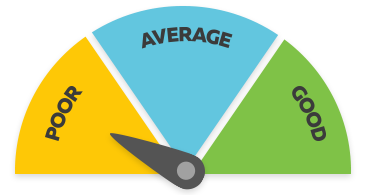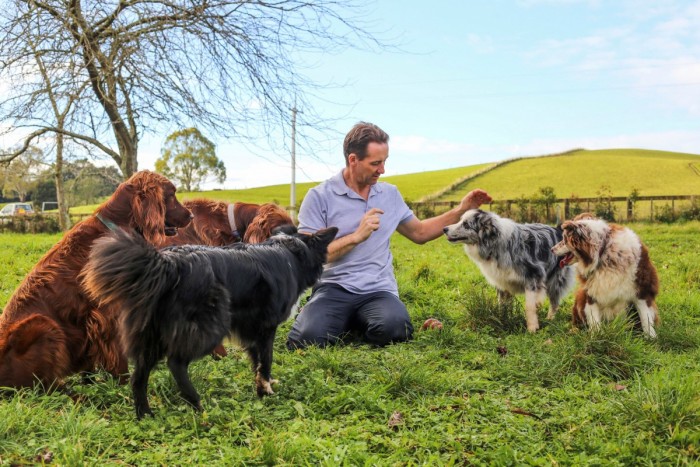Dog Trainer
Kaiako Kurī
Dog trainers train dogs and diagnose and treat their behaviour problems.
Pay
Dog trainers can earn
$49K-$50K per year
Source: APDT, 2018.
Job opportunities
Pay
Dog trainers are usually self-employed so their income depends on the success of their business.
Dog trainers running group sessions can earn between minimum wage and $50,000 a year.
Established dog trainers who do private sessions or work on dog behavioural issues may earn more than this.
Dog trainers often supplement their income by doing other related jobs, such as working at animal shelters, boarding kennels or vet clinics.
Source: Association of Pet Dog Trainers, 2018.
- PAYE.net.nz website - use this calculator to convert pay and salary information
- Employment New Zealand website - information about minimum wage rates
(This information is a guide only. Find out more about the sources of our pay information)
What you will do
Dog trainers may do some or all of the following:
- work with clients to fix dogs' behaviour problems
- hold classes for people and their dogs, including dog obedience classes
- run a dog day care centre
- talk to the general public, media, and schools about dog training
- work with organisations such as animal protection organisations and the courts.
Skills and knowledge
Dog trainers need to have:
- knowledge of animal psychology and behaviour
- the ability to observe, assess and treat dogs' behaviour problems
- the ability to train and care for dogs
- knowledge of animal biology.
Most dog trainers run their own business so they also need business, management and marketing skills.
Working conditions
Dog trainers:
- work flexible hours to suit their clients' needs, so may work nights and weekends, and be on call, or work regular hours if based at a dog day care centre
- may work from clinics, at their own or clients' homes, or at dog day care centres.
What's the job really like?

Darran Rowe
Dog Trainer
What do you do?
"Most people think that dog training is all about dogs, but a dog's behaviour is really dependent on the relationship between the dog and the owner. A lot of what I do could be seen as counselling owners through their fears as well as suggesting alternative behaviours for their dogs.
"I provide advice over the telephone, run one-to-one behavioural sessions, run group classes, and speak at vet-run puppy socialisation classes.
"I also manage all aspects of the business, things like accountancy and marketing. But most importantly I get to play with puppies and dogs. All the best learning is done through playtime."
What are some of the challenges of the job?
"You never really get the full story when talking to a client before you get to their property. When you get there it can be quite a challenge to work out the real causes underlying the problem with the dog.
"And being good at training dogs is not the full picture. You also need to be able to run a business and keep your records up to date. I recommend that you enrol in a free business management course before you hit the streets."
Entry requirements
There are no specific requirements to become a dog trainer.
However, a qualification such as a New Zealand Certificate in Animal Management (Level 4) with strands in Canine Behaviour and Training may be useful. This qualification will be offered from 2023.
Other certificates or degrees in animal behaviour and care, biology, psychology or zoology may be useful. Experience working with animals is also useful.
People who buy franchises for dog training businesses may learn particular methods for training dogs.
Secondary education
No specific secondary education is required for this job, but biology, maths and English to at least NCEA Level 2 are useful.
Personal requirements
Dog trainers need to be:
- confident and assertive
- excellent at communicating
- patient, observant and adaptable
- dedicated and motivated.
“You need empathy and compassion for dogs and people. A willingness to learn coupled with strong observational skills will help you see the issues with clarity.”

Darran Rowe
Dog Trainer
Useful experience
Useful experience for dog trainers includes:
- any paid or voluntary dog or animal training
- voluntary work at the SPCA
- work in veterinary clinics or dog day care centres
- work at boarding kennels and catteries.
Physical requirements
Dog trainers need to be strong enough to control large dogs.
Find out more about training
- Association of Pet Dog Trainers New Zealand
- www.apdtnz.org.nz
- International Association of Animal Behaviour Consultants
- courses@iaabc.org - www.iaabc.org
- International Association of Canine Professionals
- https://iacpdogs.org
What are the chances of getting a job?
Dog trainer vacancies hard to find
Dog trainer vacancies are rare because:
- the industry is small – about 250 trainers belong to the Association of Pet Dog Trainers
- few businesses or organisations employ full-time dog trainers
- most dog trainers are self-employed.
According to the Census, 342 dog trainers worked in New Zealand in 2018.
New Zealanders spending more on training their dogs
Although vacancies are rare, opportunities for dog trainers are increasing due to:
- New Zealanders spending more on dog training
- an increasing number of dogs being registered.
More than 560,000 dogs were registered on the National Dog Database in 2018, up nearly 30,000 from 2014.
Experience with dogs important
Your chances of securing dog training clients are best if you have:
- trained your own dogs
- either paid or voluntary experience of training or looking after dogs
- an animal health or welfare qualification.
Self-employment common among dog trainers
Most dog trainers are self-employed, or have a franchise for an established dog training company.
Sources
- Local Government in New Zealand, 'Dog Control Statistics', accessed October 2018, (www.localcouncils.govt.nz).
- New Zealand Companion Animal Council, 'Companion Animals in New Zealand 2016', accessed October 2018, (www.nzcac.org.nz).
- NZ Herald, 'Professional Dog Waking Fuels Rise in Dog Training Education', 27 April 2018, (www.nzherald.co.nz).
- Rowe, D, treasurer, Association of Pet Dog Trainers New Zealand, careers.govt.nz interview, September 2018.
- Stats NZ, '2018 Census Data', 2019.
(This information is a guide only. Find out more about the sources of our job opportunities information)
Progression and specialisations
Dog trainers who are employed by an established business may progress to set up their own dog training business.
Last updated 31 March 2025

